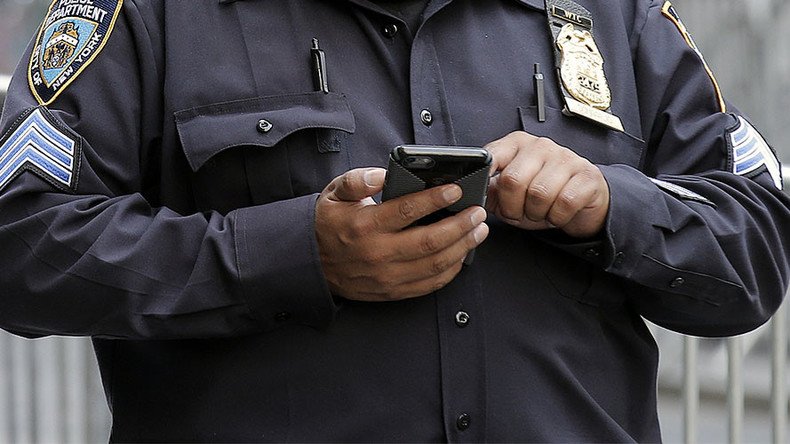Police need warrant to search cell phones, insist privacy campaigners

Police use of data extraction equipment to obtain information from suspects’ cell phones should require a search warrant, according to campaigners, who say the practice is not adequately regulated.
According to Privacy International police forces across the country are increasingly using the technique, but it is not properly monitored and is being carried out by insufficiently trained officers.
Digital forensic equipment has been used under counter-terrorism powers at ports and airports to download data from cell phones for several years. Concerns over the practice were first raised by the independent reviewer of terrorism legislation, David Anderson QC, in 2012.
The technology is now being used in other police forces.
Cell phone data can contain an enormous amount of personal information such as photographs, text messages and data history.
A Metropolitan police document obtained by Privacy International says that “self-service kiosks” are being installed across all London boroughs.
“The key objective is to enable frontline officers [to obtain] faster and easier access to digital information,” it states.
It also says: “The ingestion of data from tens of thousands of digital services annually at dozens of different locations introduces a complex data management challenge.
“[The Met police] need the capability to effectively and efficiently manage data through its life cycle, this will vary from deletion within days of capture to maintenance for an indefinite period extending for many years.”
Millie Graham Wood, legal officer at Privacy International, told the Guardian: “Local police forces are not yet ready to handle these highly intrusive tools.”
“The police have lost files, undermined serious investigations and failed to safeguard people’s personal data. Across the country the police have expanded their use of mobile (cell) phone extraction on the quiet, and it is unclear what effective oversight exists.
“The bigger issue is whether traditional search practices, where no warrant is required, should be applied to mobile phones, which can contain a massive amount of highly personal data. Modern mobile phones are not just phones, but mini computers, cameras, video players, calendars, recorders, libraries, diaries, albums, maps all in one,” said Wood.
“Thus, searching a mobile phone cannot accurately be compared to a search of the home, let alone a physical search. It is far more exhaustive. They have immense storage capacity, can hold thousands of pictures, videos and apps, all of which can reveal so much about your, and potentially your contacts’, political, sexual and religious identity. They told location data, and even deleted data as indicated by the Home Office contract.”
Under the Police and Criminal Evidence Act 1984, officers can search, seize and retain data from a cell phone belonging to anyone who has been arrested on suspicion of committing an offense.
Any data seized can only be kept for the purpose of a criminal investigation and if it is required for use as evidence at trial, or for forensic examination or investigation in connection with an offense.
National Police Chiefs’ council lead for digital forensics, Deputy Chief Constable Nicholas Baker, said: “Mobile phone kiosks are an invaluable digital forensic tool used by police forces to improve the quality of early investigations, protect victims, witnesses and the public at large. Authorized users are trained to use a controlled approach to extract specific data which is invaluable to progressing those early investigations.
“Data extraction from mobile phones is legal under provisions of the Police and Criminal Evidence Act, which enables officers to review information stored electronically on suspects’ devices while in custody and often leads to suspects being charged, preventing further harm and helping to safeguard victims.
“We work with the forensic science regulator and associated network of experts to ensure that police forces have the necessary guidance to deploy these tools effectively and within the provisions of the law. Attaining accreditation and improving standards for digital forensics is a top priority for the police service that we will continue to work towards.”














